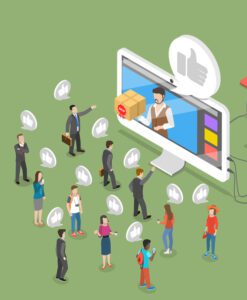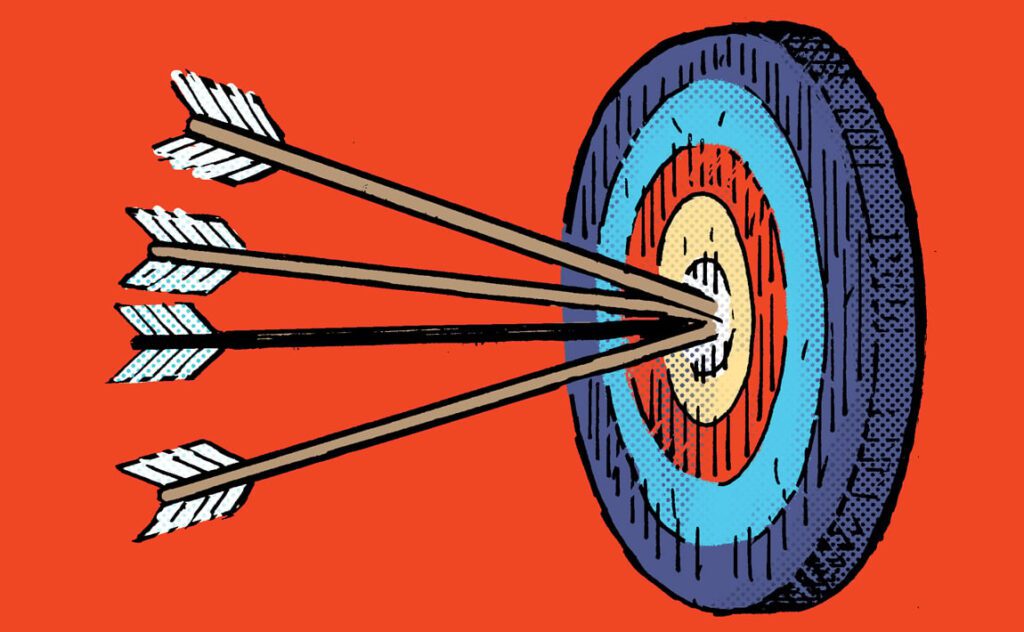 If your brand is in the market for a B2B influencer, you probably can’t afford a household name celebrity. But chances are, you don’t need one anyway.
If your brand is in the market for a B2B influencer, you probably can’t afford a household name celebrity. But chances are, you don’t need one anyway.
While a flashy A-lister might get you attention at a meet and greet, it won’t add credibility to your B2B brand. Mike Neumeier, CEO of Arketi Group, notes that one of the best influencer campaigns he ever worked on for a client was with a programmer experienced in a very specialized type of coding.
“We had 1,000 people attend a webinar because he was an influencer in this small niche community,” he says. “He was definitely not Kardashian-level, but within this group, the name alone attracted the right kind of people who wanted to hear what he was saying.”
In reality, influencer marketing is nothing new for savvy B2B marketers, says Neumeier. “We were doing it before it had a fancy name—we just used to call it finding spokespersons like authors or academics who were uber credible on the topic.”
Neumeier recently chatted with Chief Marketer about things marketers should consider when choosing a B2B influencer to represent their brand.
Know what you want to accomplish. The first step towards choosing the right B2B influencer partner is knowing what you want out of the relationship. Often, B2B brands want to align their product or service with solid thought leadership and industry knowledge in the space, and create educational information to attract prospects to the brand. Knowing your goal can help point you in the right direction.
“If you are the number one provider of tech solutions to cities and municipalities, what are the top universities pumping out city managers and doing heavy research in understanding how metro areas can be more effective?” says Neumeier. “Dig into the professors there and see who is doing research that lines up with your organization. Depending on the university, simply being an academic should automatically make them a thought leader.”
Who literally wrote the book on your topic? Authors can be a fantastic choice for a B2B influencer. And depending on how you want to use them, it doesn’t necessarily even matter if they have huge social media followings. A significant LinkedIn audience can be a boon if you’re using them for webinars and want to reach those followers to boost registrations. But if you’re asking them to speak at intimate events and engage with a dozen important customers in a roundtable setting, it might not be as crucial.
“It can be a great affiliation for your brand,” he says, noting such settings can also be a terrific opportunity for customers to rub elbows with prospects, and share how your product is working for their organization. “It lends a level of credibility.”
You May Also Enjoy:
- Citrix Drives Awareness With Red Bull Racing Partnership
- FedEx Cup PGA Sponsorship Helps Engage B2B Customers
- Proving Influencer Marketing ROI in a Fake Follower World
Consider your customers. One great place to find an influencer is your own customer base. Do you have a customer who loves your product and works for a great company that you can shine the light on? This is a win-win for everyone involved, says Neumeier.
“You’re raising their personal profile, their organization’s profile and your brand’s profile along with it. In B2B, peer to peer influencing is huge, in the financial and legal spaces in particular. If you can find a customer you can turn into a rock star, do that all day long.”
Want a celebrity? Make sure there is synergy. More and more B2B brands are considering partnerships with sports stars like golfers on the PGA tour or former NBA superstars. This can be great for awareness, but keep in mind that there will be no educational or thought leadership component to this type of partnership, says Neumeier. And keep in mind that not everyone in your audience plays golf or knows their pro basketball history.
Think about the experience. Creating an experiential element around your influencer or celebrity sponsorship is a great way to engage your audience. Many large brands, particularly large accounting firms and high-tech companies, are creating great events and experiences around annual events like PGA tournaments.
“Surround it with experiential activities,” he says. “It’s a big commitment and it can work, but its super expensive.”
Another expensive—but potentially beneficial—route is to engage a celebrity that would be typically unattainable for the average person to interact with, and create an experience for your VIPs.
“They won’t talk about your product, but who wouldn’t want to be in a small room with a former president.”
Keep your ROI top of mind. Make sure you can measure whether your investment in the B2B influencer relationship is really worth it. Online, you can measure whether webinars, podcasts or ebooks created with a third-party influencer perform better than those with your internal experts.
“See what is producing more pipeline opportunity in the long run,” says Neumeier.
Tracking is more manual for things like live events, but again, you can look at whether your influencer was a bigger draw at your live roundtable or conference session, versus members of your own team.
“Have measurement built-in at the beginning of the program,” he says.

 Network
Network

